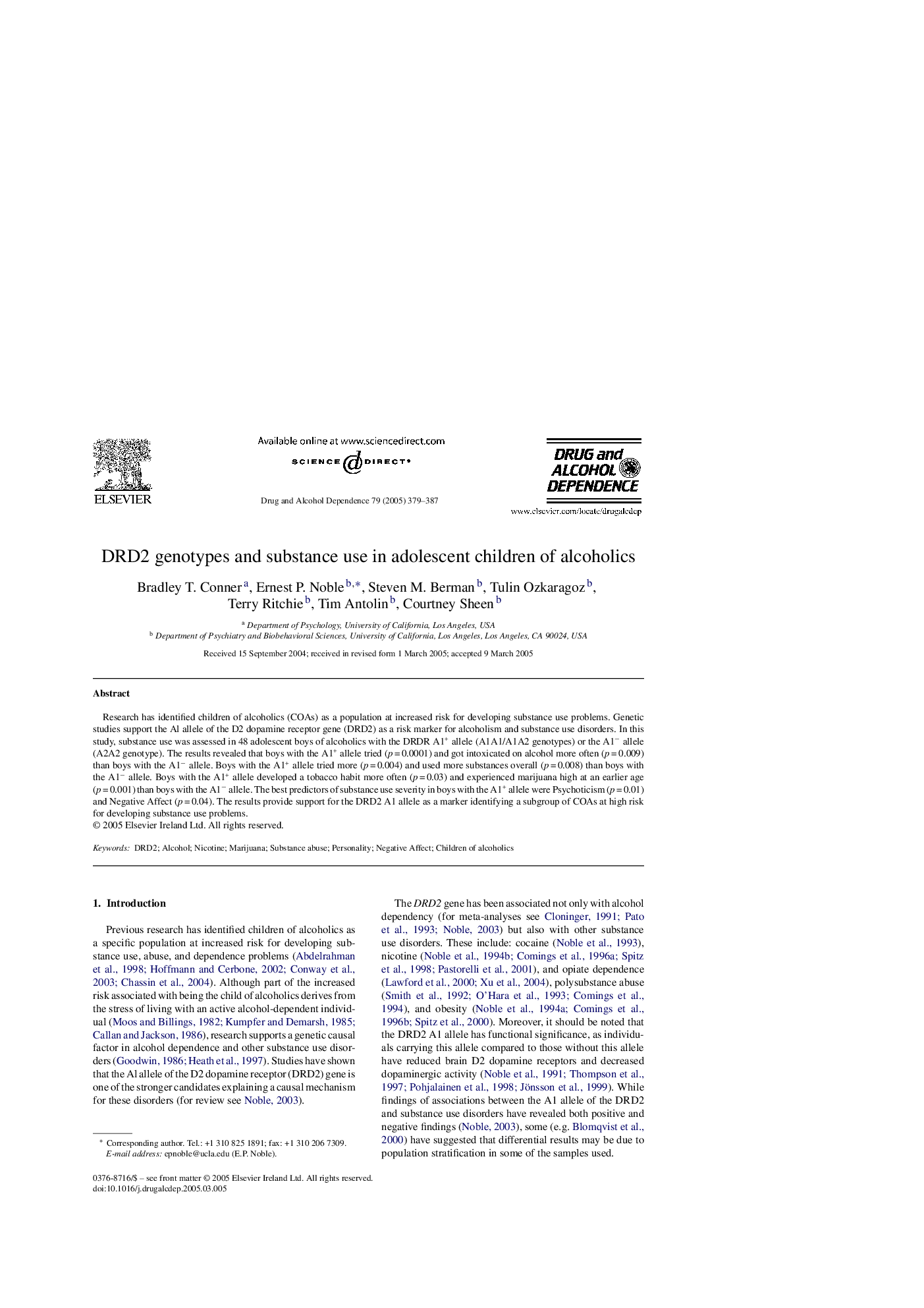| Article ID | Journal | Published Year | Pages | File Type |
|---|---|---|---|---|
| 10510171 | Drug and Alcohol Dependence | 2005 | 9 Pages |
Abstract
Research has identified children of alcoholics (COAs) as a population at increased risk for developing substance use problems. Genetic studies support the Al allele of the D2 dopamine receptor gene (DRD2) as a risk marker for alcoholism and substance use disorders. In this study, substance use was assessed in 48 adolescent boys of alcoholics with the DRDR A1+ allele (A1A1/A1A2 genotypes) or the A1â allele (A2A2 genotype). The results revealed that boys with the A1+ allele tried (p = 0.0001) and got intoxicated on alcohol more often (p = 0.009) than boys with the A1â allele. Boys with the A1+ allele tried more (p = 0.004) and used more substances overall (p = 0.008) than boys with the A1â allele. Boys with the A1+ allele developed a tobacco habit more often (p = 0.03) and experienced marijuana high at an earlier age (p = 0.001) than boys with the A1â allele. The best predictors of substance use severity in boys with the A1+ allele were Psychoticism (p = 0.01) and Negative Affect (p = 0.04). The results provide support for the DRD2 A1 allele as a marker identifying a subgroup of COAs at high risk for developing substance use problems.
Keywords
Related Topics
Life Sciences
Neuroscience
Behavioral Neuroscience
Authors
Bradley T. Conner, Ernest P. Noble, Steven M. Berman, Tulin Ozkaragoz, Terry Ritchie, Tim Antolin, Courtney Sheen,
